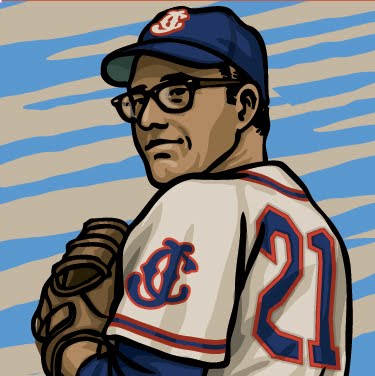 I remember watching the All-Star Game in 2002 with my old buddy Charlie Vascellaro and the game goes into extra innings... really good game, extra innings, 7-7 tie, the best players in the game at the time, how much more better does this get? Well, not much more, apparently. The teams ran out of pitchers. Everyone was already in the game, and no one wanted to let the present pitchers continue. So what did they do? The officials called the friggin' game! Why didn't and outfielder step forward and say "I'll pitch!" or an infielder, taken with the honor of being picked by the fans of this great game say "it's just so great to be here tonight, give me the ball coach, I love this game!". But none of that happened. They called the game at a tie, just like some European soccer game. The best players in the game, all on one field at the same time, and it ends in a tie. It was such a disgrace, it gives me agida (look it up) just writing about it tonight. In fact, that's all I'll say about that.
I remember watching the All-Star Game in 2002 with my old buddy Charlie Vascellaro and the game goes into extra innings... really good game, extra innings, 7-7 tie, the best players in the game at the time, how much more better does this get? Well, not much more, apparently. The teams ran out of pitchers. Everyone was already in the game, and no one wanted to let the present pitchers continue. So what did they do? The officials called the friggin' game! Why didn't and outfielder step forward and say "I'll pitch!" or an infielder, taken with the honor of being picked by the fans of this great game say "it's just so great to be here tonight, give me the ball coach, I love this game!". But none of that happened. They called the game at a tie, just like some European soccer game. The best players in the game, all on one field at the same time, and it ends in a tie. It was such a disgrace, it gives me agida (look it up) just writing about it tonight. In fact, that's all I'll say about that.To cleanse my palette after that remembrance, let's take a look at "Charlie "Old Hoss" Radbourn. "Old Hoss" as he was known, had a respectable career going for him, winning 25, 33 and then 48 games for the Providence Grays but midway through the 1884 season the irritable Radbourn and the equally surly Charlie Sweeney, the Grays other pitcher, took their rivalry to another level when they fought violently after a game in which Sweeney showed up drunk. Sweeney was suspended, effectively crippling the ballclub. You see, back then, players had to play the whole game, when a pitcher was tired or getting hit bad, instead of heading for the showers, he switched places with an outfielder or infielder, who doubled as a pitcher. Loosing their other starting pitcher mid-season was a death sentence to the Grays who needed to win the pennant in order to stay financially solvent. With his team faced with disbanding, Old Hoss volunteered to start every game left in the season in exchange for a raise and a release from the reserve clause that bound him to his team and be given free agency at the season's end. An agreement was struck and he went on to pitch more than 678 inning and won a staggering 59 games! What a season and for God's sake, what an arm that guy must have had. When guys today pitch 5-6 innings every 4 days at the most, this guy must have been like having 3 tender modern-day pitchers on the Gray's staff.
Radbourn gained his free agency after the season, and elected to stay with Providence. Old Hoss had a good career afterwards, really showing no ill effects from his monstrous season of 1884. In a side not, if you look at the team portrait of the 1886 Boston Beaneaters, there's Old Hoss, back row, far right, giving the cameraman what is probably the earliest documented middle finger salute. After his career ended, the vain Radbourn lost an eye and was disfigured in a hunting accident and spent the rest of his life hidden away in the back room of the saloon he owned in Bloomington, Illinois, dying in 1897. He was elected to the Hall of Fame, class of 1939.



In 2005, Roger Clemens was paid almost $1.25 million per pitching win. In 1884, with a rough adjustment for inflation, Charlie Radbourn got $1,250 per win.
ReplyDeleteClemens flew home on days he didn't pitch, on the rare day Radbourn didn't work he played shortstop. I don't know who was the better pitcher, but it's pretty easy to tell which one was a lot more cost effective.